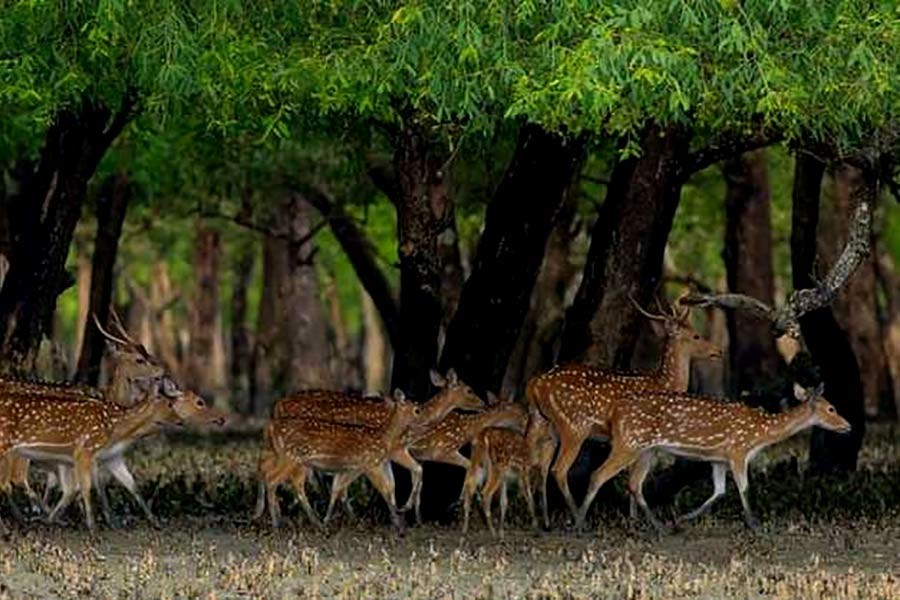Fishermen catching a Gangetic dolphin in their net and discarding the creature on the riverbank could be viewed as a normal practice. But a section of village youths swooping on the mammal with sticks and, finally, beating it to death is not. To speak pithily, the act was brutal. It occurred in a Bangladesh village last month. The number of Gangetic dolphins, locally called 'Shushuk', has long been on fast decline. Wildlife experts list the species among many which are heading for near-extinction. Just 3/4 decades ago, large rivers of the country would offer an extraordinary spectacle: fleeting glimpses of somersaulting dolphins, or Shushuks, in the mid-river. In fact, the exercise was prompted by the creatures' need for breathing in air through its snoots.
The recent killing of a harmless 'Shushuk' by ignorant villagers stands in stark contrast with another scenario. That spectacle shows educated rural youths saving storm-battered wildlife species and animals and birds found in human habitats. They give them primary treatment before handing them over to the forest authorities. In absence of forest offices, local administrations come forward to the rescue of these animals and birds. Thanks to the youths' selfless efforts, hundreds of these species hit by hostile conditions could be rescued. On being cured, a lot of them are released into the wild and allowed to fly into freedom. Wildlife conservation activism is a recent practice in the country's rural areas. Alongside these activities taken up increasingly by nature-loving rural youths, the sights of triumphant people returning home, a hunted and dead wild boar hanging from a pole, or taking a group selfie with a mercilessly killed fishing cat ('Mechho Baagh') are becoming rarer. The famously cute animals like slow loris, indigenous to Moulvibazar forests, or, for that matter, pythons and 'Guishaps' or jackals and rabbits, are no longer killed or disturbed. Nowadays different types of owl, storks, kites and eagles are relatively safe than in the past. The environment and biodiversity conscious youths and their platforms deserve to be credited with bringing about this change.
Geologically a deltaic swampy land, Bangladesh was once an ideal home to hundreds of animal and bird species. Human invasion of the peaceful habitats in the animal kingdom eventually prompted the start of a process of extinction of these creatures. Today's younger generations will become largely incredulous on being told that vast areas in today's Dhanmondi, Shyamoli or Mirpur in Dhaka were once used to hearing the howls of jackals after evening. That tigers, rhinos, wild boars and spotted deer once roamed the Bhawal forest near Joydevpur will evoke equal levels of incredulity.
In fact, almost the entire Bangladesh once served as a safe home for wildlife species. Many of them have gone extinct. Those which could save themselves from the reach of hunters and poaching syndicates are now mostly concentrated in the greater Sylhet region, Chittagong Hill Tracts and the areas close to forests and water bodies like 'Haors'. The 'Haor' areas have for centuries been a safe shelter for migratory birds during winter. Indiscriminate trapping and killing of these birds have of late started leading to a sharp decline in their arrivals. However, due to full-scale campaigns by animal rights activists and wildlife conservation experts, the country's well-known bird sanctuaries are now getting back their earlier lively view.
The state of the world's wildlife in general is highly depressing. As the World Wildlife Fund views it, apart from mass extinction of many species in the distant past, 60 per cent of all animals were wiped out by human activities in just 44 years -- from 1970 to 2014. Against this troubling backdrop, the spontaneous activism related to wildlife conservation in Bangladesh may prompt activists elsewhere to take heart.


